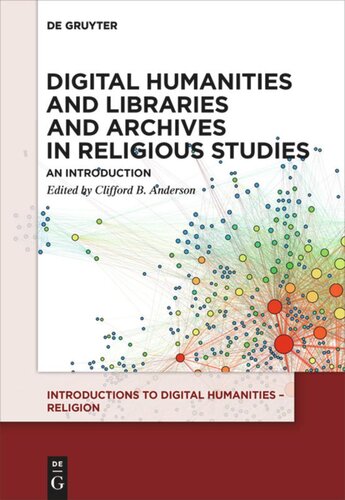

Most ebook files are in PDF format, so you can easily read them using various software such as Foxit Reader or directly on the Google Chrome browser.
Some ebook files are released by publishers in other formats such as .awz, .mobi, .epub, .fb2, etc. You may need to install specific software to read these formats on mobile/PC, such as Calibre.
Please read the tutorial at this link: https://ebookbell.com/faq
We offer FREE conversion to the popular formats you request; however, this may take some time. Therefore, right after payment, please email us, and we will try to provide the service as quickly as possible.
For some exceptional file formats or broken links (if any), please refrain from opening any disputes. Instead, email us first, and we will try to assist within a maximum of 6 hours.
EbookBell Team

0.0
0 reviewsOpen Access
How are digital humanists drawing on libraries and archives to advance research and learning in the field of religious studies and theology? How can librarians and archivists make their collections accessible to digital humanists?
The goal of this volume is to provide an overview of how religious and theological libraries and archives are supporting the nascent field of digital humanities in religious studies. The volume showcases the perspectives of faculty, librarians, archivists, and allied cultural heritage professionals who are drawing on primary and secondary sources in innovative ways to create digital humanities projects in theology and religious studies. Topics include curating collections as data, conducting stylometric analyses of religious texts, and teaching digital humanities at theological libraries.
The shift to digital humanities promises closer collaborations between scholars, archivists, and librarians. The chapters in this volume constitute essential reading for those interested in the future of theological librarianship and of digital scholarship in the fields of religious studies and theology.